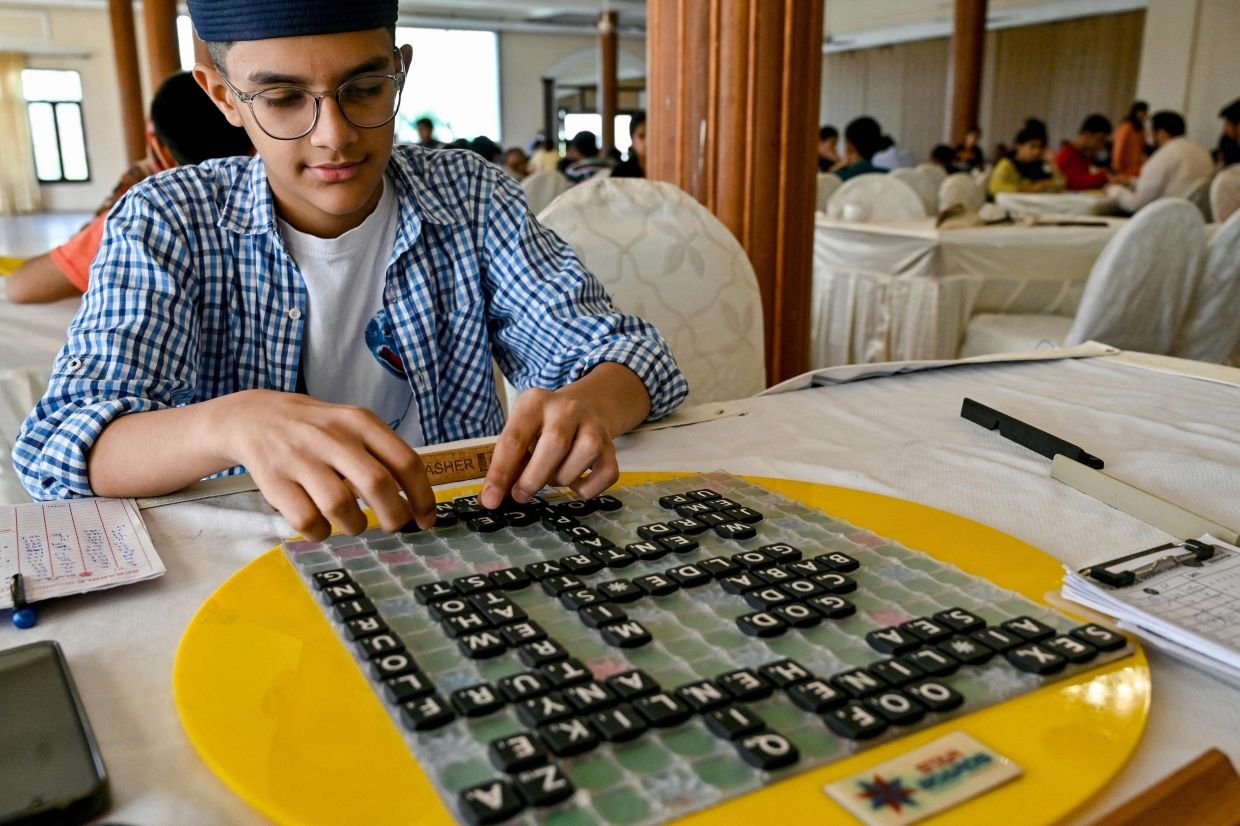While many teenagers might be unfamiliar with words like “dram” (a whisky unit), “turm” (a cavalry formation), or “taupie” (a naive youngster), 13-year-old Bilal Asher, the reigning under-14 Scrabble champion from Pakistan, knows them with ease.
Although Scrabble is often regarded as a traditional board game, it has seen a surge in popularity among young players in Pakistan. This growing interest is partly linked to the country’s historical ties to the English language, which date back to British colonial rule. Since the introduction of the Youth World Scrabble Championship in 2006, Pakistan has emerged as a dominant force, producing more champions than any other nation.
Karachi: The Scrabble Capital
Karachi, Pakistan’s largest metropolis, has become a breeding ground for top-tier Scrabble players. Many schools offer structured training programs and even scholarships for high-achieving players, while parents actively support their children’s involvement in the game. At a recent competition organized by the Pakistan Scrabble Association (PSA), around 100 young participants showcased their impressive vocabulary skills.
“Parents encourage their children to play Scrabble because they view it as a constructive and educational activity,” said 16-year-old Affan Salman, who clinched the youth world title in Sri Lanka last year.
The prevalence of English in Pakistan’s education system stems from the country’s colonial past. In the 19th century, British official Thomas Macaulay promoted English education to create an elite class that could serve the colonial administration. Even after gaining independence in 1947, English remained an essential language alongside Urdu and more than 70 regional dialects.
Language as a Tool for Advancement
Proficiency in English is often associated with career growth and upward mobility in Pakistan. It plays a significant role in official communication, with government statements frequently using formal and old-fashioned terms like “dastardly” to describe militant attacks and “nefarious” for enemies.
With approximately 26 million Pakistani children out of school, as reported in the 2023 census, mastering English remains an aspiration for many. Scrabble, which strengthens vocabulary, is viewed as a stepping stone toward scholarships and future job prospects.
“Scrabble opens doors,” said Bilal Asher’s sister, Manaal, the country’s top female player. However, she noted that success in the game requires perseverance. “It’s not for everyone,” she added.
At Scrabble tournaments in Karachi, young players start with simple words like “toy” and “jar” before advancing to more challenging vocabulary. The demand for professional Scrabble coaching is high, with expert trainer Waseem Khatri mentoring 6,000 students across various schools in Karachi. His earnings are nearly seven times the country’s minimum wage.
For Pakistan’s young Scrabble stars, the game represents more than just recreation—it’s a stepping stone to greater opportunities. And for Asher, victory is an indescribable experience. “When I win, I have no words,” he said.





